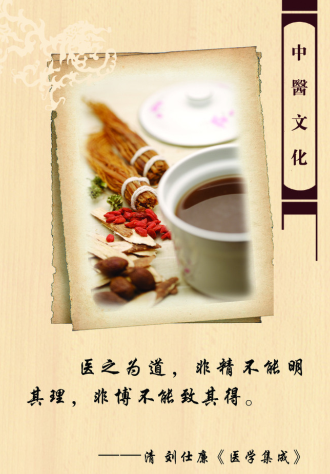Generally speaking, people with strong constitution infrequently contract disease because of superabundance of healthy qi; people with weak constitution frequently contract disease because of insufficiency of healthy qi. However, different types of constitution usually exert different effects on the occurrence of disease.
Different types of constitution and different levels of susceptibility to invasion of pathogenic factors
Different types of constitution are subject to invasion of different pathogenic factors. For example, people with superabundant yang and deficient yin are frequently attacked by wind and heat, but infrequently attacked by cold and dampness; people with superabundant yin and deficient yang are frequently attacked by cold and dampness, but infrequently attacked by wind and heat; people with insufficient body fluid and blood are frequently attacked by dryness, but infrequently attacked by dampness; people with exuberant phlegm and dampness are frequently attacked by dampness, but infrequently attacked by dryness.
Different types of Constitution and Principle of Pathogenesis
The location and nature of disease after the invasion of pathogenic factors are usually decided by the types of constitution. In people with frequent weak constitution, disease tends to transmit to the weak areas and develop into special pathological changes. For example, spleen deficiency tends to lead to direct invasion of pathogenic factors into the spleen meridian and bring on spleen disease; lung deficiency tends to lead to direct invasion of pathogenic factors into the lung meridian and bring on lung disease; liver deficiency tends to lead to direct invasion of pathogenic factors into the liver meridian and bring on liver disease;

Heart deficiency tends to lead to direct invasion of pathogenic factors into the heart meridian and bring on heart disease; kidney deficiency tends to lead to direct invasion of pathogenic factors into the kidney meridian and bring on kidney disease; superficial deficiency tends to lead to external lingering of pathogenic factors and bring on external syndrome; meridian deficiency tends to lead to transmission of pathogenic factors along the meridians and bring on disorder of the meridians, etc.
The types of constitution decide the nature of disease. For example, the constitution with superabundant yang tends to develop heat syndrome after being attacked by pathogenic heat and even by pathogenic wind, cold and dampness which will transfer into heat after invasion into the body; the constitution with deficiency of yin tends to develop cold syndrome after being attacked by pathogenic factors; the constitution with spleen deficiency tends to develop dampness syndrome after being attacked by pathogenic factors. Thus the invasion of pathogenic factors in the same environment will lead to diseases of different nature because of difference in constitution. Such a phenomenon in TCM is called "transformation according to constitution" or "transformation of nature of disease".
Different types of temperament and different levels of susceptibility to the invasion of pathogenic factors
Temperament is a special psychological reaction of constitution. Different types of temperament lead to different levels of susceptibility to the invasion of pathogenic factors. This phenomenon is the same as that of different types of constitution leading to different levels of susceptibility to the invasion of pathogenic factors. Generally speaking, the temperament with abundance of yang is easy to be attacked by wind and heat and difficult to be attacked by cold and dampness; the temperament with abundance of yin is easy to be attacked by cold and dampness and difficult to be attacked by wind and heat.
Huangdi Neijing also holds that braveness and timidity also affect the occurrence of disease. After being attacked by pathogenic factors, people with brave temperament are characterized by rapid flow of qi and blood, no retention and quick elimination of pathogenic factors; people with timid temperament are marked by slow flow of qi and blood and frequent retention of pathogenic factors, leading to occurrence of disease.







